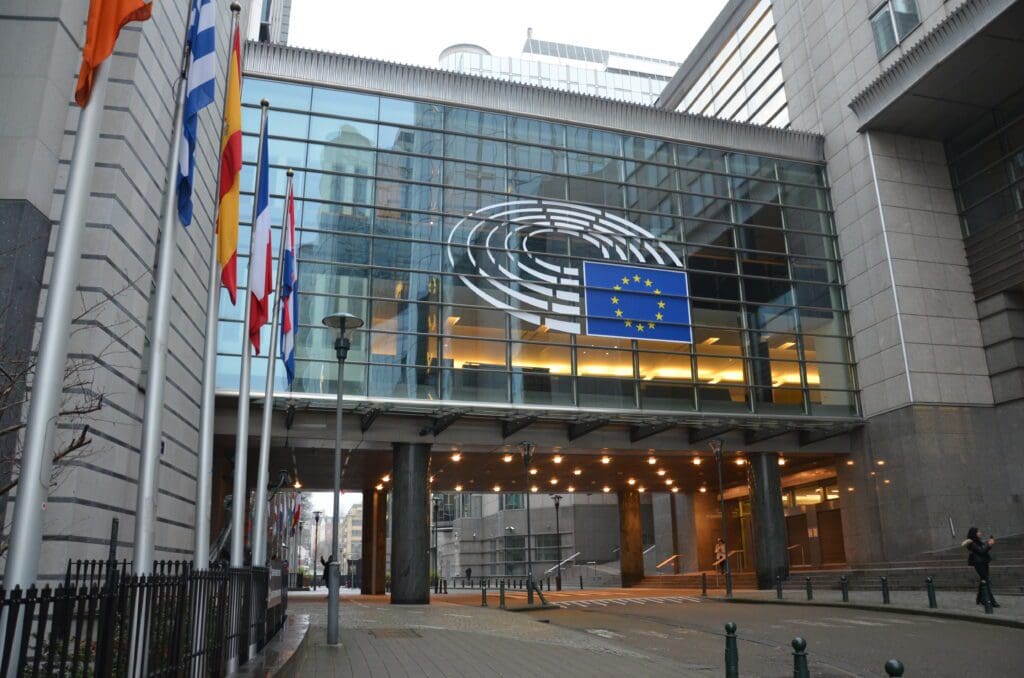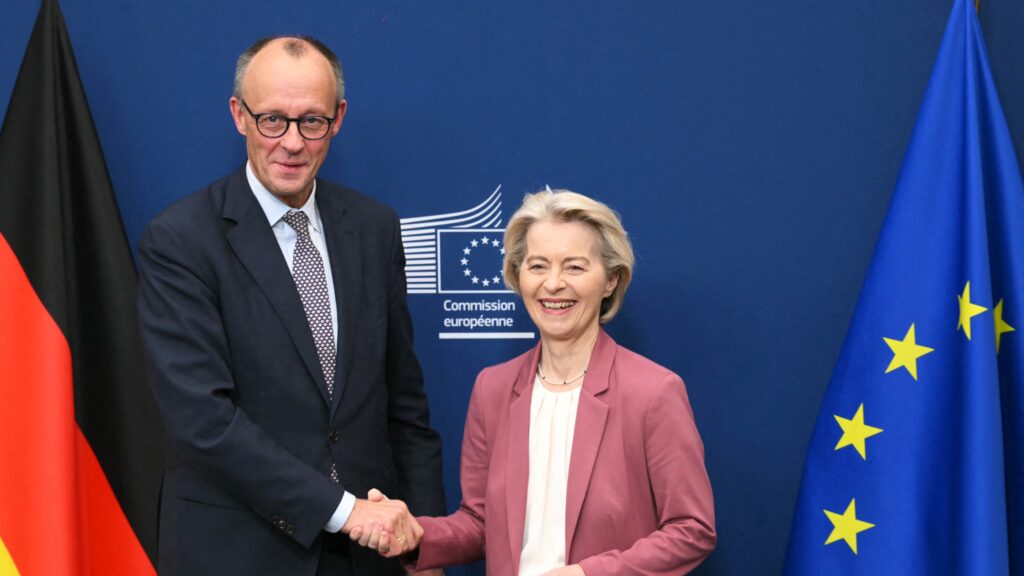This article was first published on Constitutional Discourse.
Current ‘diplomatic’ and political relations between some Member States and the EU are decidedly icy, and some of these conflicts run the risk of becoming frozen in the short term, especially regarding those affecting the work of domestic justice systems, including—to an increasing extent—constitutional jurisdictions. In this context, I was recently invited to present in and moderate a panel at a conference on the rule of law construed as lawfare in Budapest. I hereby will summarize some of what I said there to shed light on some problems of interpretation and common understanding regarding the concepts subjects to discussion that might lead to the thawing of these icy relations.
If we look at the pitch (rule of law as lawfare), then by definition, we are looking at the two concepts tied together as part of the strategic use of legal proceedings to intimidate or hinder an opponent. Lawfare as an expression may be a bit more recent than the US-born SLAPP (short for Strategic Litigation Against Public Participation). In the end, we can consider SLAPP as a form of lawfare as well, as SLAPP-suits also involve (the threat) of legal action relating to a matter of public interest (usually intimidating speech on these matters) by using litigation tactics that might be considered abusive by certain rule of law standards regarding access to justice and non-discrimination. Obviously, counter-lawfaring tactics have also been invented in many US jurisdictions where this really is a problem at present, which we now very cleverly call SLAPP-back suits, signifying the adversarial nature of the litigation context. (Clearly, what the conference thematized as lawfare in the broader context of rule of law, exists under a different name in different jurisdictions for specific matters of public interest.)
Already in 2008, Australian Chief Justice Robert French stated that the public interest is often defined according to the perspectives and interests of the person doing the defining. His personal perception reported was that the maintenance of the rule of law and fairness and efficiency in access to justice serve the public interest. (See: Public Interest and the Rule of Law Report, 2010, p. 7., para. 23.) If we accept—and I do—that the rule of law and public interest are connected, then providing a lawfare context for any rule of law inquiry becomes relevant in terms of the use of strategic legal proceedings.
I now would like to turn to the notion of rule of law, and what it means for the purposes of any lawfare inquiry. The overall message of the conference was that international organizations, more specifically the EU, tend to use the rule of law as a one-size-fits-all ‘stick’ to question Member States domestic policy and legislative choices, more specifically when it comes to judiciary institutions, from ordinary courts to constitutional jurisdictions, and trying to induce change from the top.
In a former life, I have worked for more than a decade as a legal translator, trying to prevent very important legal messages from getting lost in translation. So to begin, I will approach the rule of law concept from a linguistic standpoint. In my country, Hungary, ‘rule of law’ means ‘jogállamiság’, wherein ‘jog’ stands for law and ‘államiság’ stands for statehood.
To me, there are two things that follow from this:
- Law should dominate discourse and debates about the ‘rule of law’, and not politics, although we see a gradually more slippery slope slanted towards politics in this arena.
- Debates about the rule of law should not neglect its state-bound evolution and development, along with the different cultural contexts that come with it. This is true globally as much as it is true in our two Europes—those of the Council of Europe and the European Union. This also means that any interpretation of the rule of law concept shall primarily be subordinated to state-level frameworks and approaches, as these constitute the natural habitat of the concept as it was originally conceived.
I don’t doubt the need for a standardized approach internationally, but any such effort should be carried out with deference to national jurisdictions.
In its 2011 Report on the Rule of Law, the European Commission for Democracy Through Law (otherwise known as the Venice Commission) had already pointed out that the rule of law has many more different origins in the German, French and Anglo-Saxon legal culture under the notions of Etat de droit, Rechtsstaat or the rule of law. Through abstraction, the Commission created a checklist for the Member States to abide by, containing benchmarks, general standards and approaches rooted both in soft and hard law. (For future reference the benchmarks are: legality, legal certainty, prevention of abuse of powers, non-discrimination, access to justice.)
The Commission’s Report—within its mandate to provide constitutional assistance to the Member States based on the analysis of legal norms—also asserted that it is doubtful whether the Rule of Law continues to be a ‘useful fundamental concept of public law’. but we can still agree that it looked at the many diverging approaches of the concept originating in the Member States. Thus, we may rightfully ask: is the context of the state really the natural habitat of Rule of Law?
If we accept this premise, and turn to the EU for a minute (having no statehood), then the question may rightly be asked whether the EU has legal grounds (i.e. a transferred competence) to define and enforce what the rule of law is in the Member States.
I have written elsewhere about this problematic in the context of some more recent EU rule of law debates, but to recite some of those arguments, I just want to reiterate that if we accept that
‘the rule of law is primordially tied to states and state-made laws, then we could address the issue of statehood in the European Union as well and its effect on the rule of law. Rainer Arnold conceptualizes that the external aspect of rule of law appearing in the EU represents what he calls “open statehood”, existing in parallel with the internal (state-bound) aspect of the rule of law (both embodied simultaneously by a national constitution). Arnold also makes the argument that establishing the rule of law is what is basically understood under “constitutionalization”, and under its external aspect: (i) concepts originally anchored in national constitutional law start to appear in international, European contexts as (ii) states regulate their relationship with the international community.’ (see: op. cit. supra, p. 213.)
From 2020 on, the EU has established a practice of Rule of Law Reports, directed at the Member States. The framework of the Reports does not really provide a definition for the concept, but holds that it is a common value, while in other places refers to it as an established principle, the essential content of which is the same in the EU. The EU institutions have nonetheless created strategic mechanisms through which not legal but political dialogue will lead to the ‘deepening of our common understanding’ on the concept.
The point that I am trying to make is this: If we treat the deepening understanding of the common value of Rule of Law as we would the space race, with definite winners and losers, then we degrade it. There can be no winners and losers here, really, as every state is a winner and a loser simultaneously in their daily battles on the frontlines of the Rule of Law.
Some of these battles are acute, some try to tackle chronic symptoms, and it is very hard to credibly create systems of indexing, wherein each and every state actor may be qualified according to the same, abstract level of success or failure on these merits. In the world of scoreboards, indices and lists of conditionality, this is another mindset, through which certain tools diminish the role of law in this debate, favouring political, economic, monetary or financial considerations.
If we continue to judge national jurisdictions, including domestic justice systems, under this very logic,
this might result in a deepening crisis of the integration, and a simultaneous erosion of the Rule of Law concept, not only the discourse on it.
However, national jurisdictions, including domestic justice systems that carry out the essential state function of adjudicating legal disputes can be assessed through legal means or through a more legalistic lens at the international level. At this point, I need to revert to the ECtHR and some of its case relevant case law.
Just as the EU in 2020 came out with its first Rule of Law Report, the ECtHR first issued a judgment on the Icelandic national judiciary—in terms of its appointments—that same year. The case was a precursor to Icelandic judicial reform, and looked at the requirement of ‘court established by law’ In Ástráðsson v Iceland, the Court introduced the concept of merit in judicial appointments, stating that the very notion of a ‘tribunal’ requires a composition of judges selected on the basis of merit, who fulfil the requirements of technical competence and moral integrity to perform the judicial functions required of it in a State governed by the rule of law. (Cf. para. 220 of the judgement).
Subsequently, there was a string of case law (Xero Flor, Reczkowicz, Dolinska-Ficek, Walesa), specifically relevant to Poland, dealing with the same or similar issues, but by these examples I merely meant to point out that outside of the EU framework there are international judicial fora, like the ECtHR, that rightfully—i.e. within their mandate—assess domestic justice systems (including constitutional jurisdictions) under Convention standards, also encompassing Rule of Law considerations. This can happen because the Contracting Parties (Member States) to the Convention ensure litigants proceeding in their domestic courts access to justice by way of an effective remedy in front of the ECtHR. (Any eventual strategic nature of these kinds of domestic proceedings will not be treated here.)
To arrive to my conclusions, traced back to the Rule of Law, I want to mention a recent contribution by Prof Allan Brewer-Carias, a fellow member of the European Group of Public Law, published in late 2023. The book contains arguments mostly in relation to Venezuela and Latin America, but also includes important notes on what the author calls ‘the new, fake rule of law’, attributed to the ‘degradation of the essential minimum principles of rule of law, every rule of law state must have.’ By also pointing out that these are systematically being breached in Venezuela, he enumerates these as follows (shortened, where necessary, to correspond with my argumentation, see: op. cit. supra, pp. 52-56.):
- constitutionalism, with a constitution emanating from popular sovereignty;
- democratization, based on popular sovereignty, incl. the principle of representation;
- separation of powers, i.e. the balance and control of the exercise of political power limited by law, with particular focus on an independent judiciary (‘conducted by selected and duly protected judges that are appointed with the guaranty of enjoying a career based on stability, promotion and dismissal only for grave faults and following due process rules, and subject to judicial accountability. In the judicial processes, access to justice must be guaranteed, as well as the due length of the proceedings and effective and efficient justice’);
- legality, requiring a duty to abide by the constitution, under the law, exposing state organs to judicial control (review);
- humanization, with the recognition of the existence of natural rights with a constitutional rank, incl. guarantees for access to justice, equality and non-discrimination, protection of minorities; individual rights, in particular, right to life, right to freedom, right to personal integrity, free speech; social rights, like right to education, right to work, right to the protection of health, right to cultural goods; economic rights, like free enterprise, and right to property; political rights, beside the right to elect and be elected, the right to participate in political parties, the right to protest; indigenous people rights and environmental rights.
- political decentralization, ensuring citizen participation
- a corollary of all previous principles, the principle of civil government, subordinating the military to outside (civilian) control.
Some elements on this list may seem strange or out of place to many European readers. Most European scholarly materials or even constitutional law textbooks would contain a slightly different list. Brewer-Carias’ formulation might be indicative of a regional, Latin-American Rule of Law culture or approach.
So if we are looking for the morale of this story, with a Shakespearean turn, then we should all have an understanding on ‘what is in a name’.What does the rule of law mean, depending on the relevant national, cultural, historical, constitutional context?
- Looking at the internal aspect of the Rule of Law thus necessitates a discussion on what are its core elements that ensure the proper functioning of the domestic constitutional arrangements, including the justice system. On this note, especially in the case of apex courts, the role of domestic justice systems in this is two-fold as they not only are institutional actors protecting the rule of law through applying the law, but they also create its interpretive framework, and their interpretation affects the workings of the legislative and the executive branches and their interactions with the judiciary.
- Looking at the Rule of Law from the external aspect (as suggested by Arnold, cited above) we should also talk about what are those rules of the game that international organizations like the EU should respect regarding the ties of the Rule of Law concept to its natural habitat: the level of the state and its judicial institutions.
If we cannot agree that we are allowed to have diverging approaches to the Rule of Law concept and the role of domestic justice systems in interpreting and upholding it, then our current conflicts will actually become frozen. Then, instead of thawing, it is just ice that will remain instead of justice between the players on the field, which might risk further slipping in the direction of hostile politics, and the use of any and all legal (and as we see currently, political or politically motivated) proceedings available against certain Member States as a form of lawfare.
Related articles:







